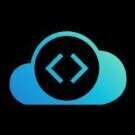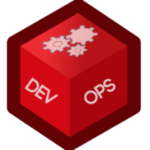Search the Community
Showing results for tags 'linux foundation'.
-
This month, our communities met in Chicago for KubeCon + CloudNativeCon North America, where AI topics were front and center. Two new LF Research reports have been published: the World of Open Source Global Spotlight and the 2023 State of Open Source in Financial Services. We also launched two new projects, the App Defense Alliance and DAOS Foundation, and announced an intent to form the High Performance Software Foundation. And as the LF delegation heads to COP28 in Dubai, we’re excited to share a preview of Linux Foundation and OS-Climate events. Lastly, don’t miss our biggest Training & Certification deals of the year! Click here for more. The post Linux Foundation Newsletter: November 2023 appeared first on Linux.com. View the full article
-
Welcome back to the CNCF Tool Interviews Series. Today, we're taking an in-depth look at OpenTofu, a tool that's making significant strides in the Infrastructure as Code (IaC) domain within the open-source community. Let's get started... View the full article
-
Terraform, a powerful Infrastructure as Code (IAC) tool, has long been the backbone of choice for DevOps professionals and developers seeking to manage their cloud infrastructure efficiently. However, recent shifts in its licensing have sent ripples of concern throughout the tech community. HashiCorp, the company behind Terraform, made a pivotal decision last month to move […]View the full article
-
- terraform
- open source
-
(and 1 more)
Tagged with:
-
The post Linux Foundation Launches OpenTofu: A New Open Source Alternative to Terraform appeared first on Linux.com. View the full article
-
- terraform
- linux foundation
-
(and 1 more)
Tagged with:
-
25+ sessions (and more to be announced) showcasing recent developments and the direction of open source in financial services and providing unique opportunities to hear from and engage with those who are leveraging open source software to solve industry challenges. SAN FRANCISCO, October 13, 2022 — The Linux Foundation, the nonprofit organization enabling mass innovation through open source… Source The post The Linux Foundation and Fintech Open Source Foundation Announce the Conference Schedule for Open Source in Finance Forum New York 2022 appeared first on Linux.com. View the full article
-
- linux foundation
- linux
-
(and 2 more)
Tagged with:
-
Industry leaders and experts across financial services, technology and open source will come together for thought-provoking insights and conversations about how to best leverage open source software to solve industry challenges. SAN FRANCISCO, June 29, 2022 — The Linux Foundation, the nonprofit organization enabling mass innovation through open source, and co-host the Fintech Open Source… Source The post The Linux Foundation and Fintech Open Source Foundation Announce New Keynote Speakers for Open Source in Finance Forum London 2022 appeared first on Linux.com. View the full article
-
- linux foundation
- linux
-
(and 3 more)
Tagged with:
-
The State of Open Source Security Highlights Many Organizations Lacking Strategies to Address Application Vulnerabilities Arising from Code Reuse BOSTON — June 21, 2022 — Snyk, the leader in developer security, and The Linux Foundation, a global nonprofit organization enabling innovation through open source, today announced the results of their first joint research report, The State of Open Source Security. The results detail the significant security risks resulting from the widespread use of open source software within modern application development as well as how many organizations are currently ill-prepared to effectively manage these risks. Specifically, the report found: Over four out of every ten (41%) organizations don’t have high confidence in their open source software security; The average application development project has 49 vulnerabilities and 80 direct dependencies (open source code called by a project); and, The time it takes to fix vulnerabilities in open source projects has steadily increased, more than doubling from 49 days in 2018 to 110 days in 2021. “Software developers today have their own supply chains – instead of assembling car parts, they are assembling code by patching together existing open source components with their unique code. While this leads to increased productivity and innovation, it has also created significant security concerns,” said Matt Jarvis, Director, Developer Relations, Snyk. “This first-of-its-kind report found widespread evidence suggesting industry naivete about the state of open source security today. Together with The Linux Foundation, we plan to leverage these findings to further educate and equip the world’s developers, empowering them to continue building fast, while also staying secure.” “While open source software undoubtedly makes developers more efficient and accelerates innovation, the way modern applications are assembled also makes them more challenging to secure,” said Brian Behlendorf, General Manager, Open Source Security Foundation (OpenSSF). “This research clearly shows the risk is real, and the industry must work even more closely together in order to move away from poor open source or software supply chain security practices.” (You can read the OpenSSF’s blog post about the report here) Snyk and The Linux Foundation will be discussing the report’s full findings as well as recommended actions to improve the security of open source software development during a number of upcoming events: Session at Open Source Summit North America in Austin, TX, titled, “Addressing Cybersecurity Challenges in Open Source Software,” taking place Tuesday, June 21, at 12 p.m. local time (CT). Webinar taking place Tuesday, June 28, at 1 p.m. ET, to register, visit here. Webinar taking place Wednesday, June 29, at 9 a.m. ET, to register, visit here. 41% of Organizations Don’t Have High Confidence in Open Source Software Security Modern application development teams are leveraging code from all sorts of places. They reuse code from other applications they’ve built and search code repositories to find open source components that provide the functionality they need. The use of open source requires a new way of thinking about developer security that many organizations have not yet adopted. Further consider: Less than half (49%) of organizations have a security policy for OSS development or usage (and this number is a mere 27% for medium-to-large companies); and, Three in ten (30%) organizations without an open source security policy openly recognize that no one on their team is currently directly addressing open source security. Average Application Development Project: 49 Vulnerabilities Spanning 80 Direct Dependencies When developers incorporate an open source component in their applications, they immediately become dependent on that component and are at risk if that component contains vulnerabilities. The report shows how real this risk is, with dozens of vulnerabilities discovered across many direct dependencies in each application evaluated. This risk is also compounded by indirect, or transitive, dependencies, which are the dependencies of your dependencies. Many developers do not even know about these dependencies, making them even more challenging to track and secure. That said, to some degree, survey respondents are aware of the security complexities created by open source in the software supply chain today: Over one-quarter of survey respondents noted they are concerned about the security impact of their direct dependencies; Only 18% of respondents said they are confident of the controls they have in place for their transitive dependencies; and, Forty percent of all vulnerabilities were found in transitive dependencies. Time to Fix: More Than Doubled from 49 Days in 2018 to 110 Days in 2021 As application development has increased in complexity, the security challenges faced by development teams have also become increasingly complex. While this makes development more efficient, the use of open source software adds to the remediation burden. The report found that fixing vulnerabilities in open source projects takes almost 20% longer (18.75%) than in proprietary projects. About The Report The State of Open Source Security is a partnership between Snyk and The Linux Foundation, with support from OpenSSF, the Cloud Native Security Foundation, the Continuous Delivery Foundation and the Eclipse Foundation. The report is based on a survey of over 550 respondents in the first quarter of 2022 as well as data from Snyk Open Source, which has scanned more than 1.3B open source projects. About Snyk Snyk is the leader in developer security. We empower the world’s developers to build secure applications and equip security teams to meet the demands of the digital world. Our developer-first approach ensures organizations can secure all of the critical components of their applications from code to cloud, leading to increased developer productivity, revenue growth, customer satisfaction, cost savings and an overall improved security posture. Snyk’s Developer Security Platform automatically integrates with a developer’s workflow and is purpose-built for security teams to collaborate with their development teams. Snyk is used by 1,500+ customers worldwide today, including industry leaders such as Asurion, Google, Intuit, MongoDB, New Relic, Revolut, and Salesforce. About The Linux Foundation The Linux Foundation is the organization of choice for the world’s top developers and companies to build ecosystems that accelerate open technology development and commercial adoption. Together with the worldwide open source community, it is solving the hardest technology problems by creating the largest shared technology investment in history. Founded in 2000, The Linux Foundation today provides tools, training and events to scale any open source project, which together deliver an economic impact not achievable by any one company. More information can be found at www.linuxfoundation.org. The post New Research from Snyk and The Linux Foundation Reveals Significant Security Concerns Resulting from Open Source Software Ubiquity appeared first on Linux Foundation. The post New Research from Snyk and The Linux Foundation Reveals Significant Security Concerns Resulting from Open Source Software Ubiquity appeared first on Linux.com. View the full article
-
- snyk
- linux foundation
-
(and 3 more)
Tagged with:
-
A survey from Snyk and the Linux Foundation published today found that less than half of respondents (49%) work for organizations that have security policies in place for the use or development of open source software. The survey, which polled 550 software development professionals, was conducted by Snyk, a provider of tools for securing software, […] View the full article
-
- open source
- security
-
(and 3 more)
Tagged with:
-
Industry experts will gather to discuss the most cutting edge topics at the cross section of finance, open source and technology, revealing recent developments and the direction of open source in financial services. SAN FRANCISCO, May 19, 2022 — The Linux Foundation, the nonprofit organization enabling mass innovation through open source, and co-host Fintech Open Source Foundation (FINOS)… Source The post The Linux Foundation and Fintech Open Source Foundation Announce the Schedule for Open Source in Finance Forum London 2022, July 13 appeared first on Linux.com. View the full article
-
- linux foundation
- fintech
-
(and 2 more)
Tagged with:
-
Key executives to discuss the state of open source initiatives at KubeCon Europe this week VALENCIA, Spain, May 16, 2022 — The Linux Foundation, a global nonprofit organization enabling mass innovation through open source, today launches the World of Open Source research series with its initial focus on the European community. The initiative will be championed by LF Research in collaboration with several European distribution and research partners. Furthermore, key executives of the Linux Foundation and partners will be speaking at KubeCon in Valencia, Spain this week as they kickstart the research series and meet with the extended open source and cloud native communities. View the full article
-
- kubecon
- linux foundation
-
(and 1 more)
Tagged with:
-

asyncapi Linux Foundation Takes Control Of AsyncAPI Specification
Devops.com posted a topic in Linux
The Linux Foundation announced today that it now plays host to an AsyncAPI Initiative that has developed a specification and a suite of open source tools for asynchronous application programming interfaces (APIs) and event-driven architectures. Founding sponsors of the AsyncAPI Initiative include Ably Realtime, Apideck, Bump, IQVIA Technologies, Slack, Solace and TIBCO. Most recently, Postman, […] The post Linux Foundation Takes Control Of AsyncAPI Specification appeared first on DevOps.com. View the full article -
The Linux Foundation is the largest open-source non-profit organization. It offers support to open source initiatives and projects. Its main focus in on the shared technology. As you know, open-source projects have seen wide adoption in recent years and certification has become one important aspect to show your skill sets. Linux Foundation is doing a great job in terms of training and certification programs on open source technologies. You can check out all Linux Foundation offerings from here. ... View the full article
- 1 reply
-
- linux
- linux foundation
-
(and 2 more)
Tagged with:
-
The Linux Foundation and edX, a provider of an online learning platform, jointly released an annual report today that for the first time finds organizations are looking for more IT personnel with open source DevOps skills (65%) than developers (59%). Clyde Seepersad, senior vice president and general manager for training and certification at The Linux […] The post Survey Sees Surge in Demand for DevOps Skills appeared first on DevOps.com. View the full article
- 1 reply
-
- edx
- linux foundation
-
(and 2 more)
Tagged with:
-
Global industry leaders and experts across financial services, technology and open source will come together virtually for thought-provoking insights and conversations about how to best leverage open source software to solve industry challenges. SAN FRANCISCO, October 13, 2020 — The Linux Foundation, the nonprofit organization enabling mass innovation through open source, along with co-host Fintech Open Source Foundation (FINOS), a nonprofit whose mission is to accelerate adoption of open source software, standards and best practices in financial services, today announced initial keynote speakers for Open Source Strategy Forum (OSSF). The event takes place virtually November 12 – 13 in the Eastern Standard Time (EST), UTC−05:00. The schedule can be viewed here and the keynote speakers can be viewed here. The post The Linux Foundation and Fintech Open Source Foundation Announce Keynote Speakers for Open Source Strategy Forum 2020 appeared first on The Linux Foundation. View the full article
- 1 reply
-
- linux
- linux foundation
-
(and 2 more)
Tagged with:
-
Founded in 2015, the CNCF (Cloud Native Computing Foundation) is a part of the nonprofit Linux foundation project. It serves as the home for several open-source projects like the Kubernetes, Envoy, and Prometheus. The CNCF has recently announced that Rook has now joined its family of graduated projects. View the full article
- 1 reply
-
- cncf
- linux foundation
-
(and 3 more)
Tagged with:
-
The open specification for defining asynchronous APIs gains momentum, seeks neutral home for open governance, community growth and industry adoption SAN FRANCISCO, Calif., March 30, 2021 – The Linux Foundation, the nonprofit organization enabling mass innovation through open source, today announced it will host the AsyncAPI Initiative. AsyncAPI is a specification and a suite of open source tools that work with asynchronous APIs and event-driven architectures. It is the fastest-growing API specification according to a recent developer survey, tripling in production usage from 2019 to 2020. Founding sponsors of the AsyncAPI Initiative include Ably Realtime, Apideck, Bump, IQVIA Technologies, Slack, Solace, and TIBCO, and AsyncAPI recently announced a partnership with Postman. Today, AsyncAPI is in production at Adidas, PayPal, Salesforce, SAP, and Slack, among other enterprise environments. “As the growth of AsyncAPI skyrocketed, it became clear to us that we needed to find a neutral, trusted home for its ongoing development. The Linux Foundation is without question the leader in bringing together interested communities to advance technology and accelerate adoption in an open way,” said Fran Méndez, who created AsyncAPI in 2016. “This natural next step for the project really represents the maturity and strength of AsyncAPI. We expect the open governance model architected and standardized by the Linux Foundation will ensure the initiative continues to thrive.” AsyncAPI helps unify documentation automation and code generation, as well as managing, testing, and monitoring asynchronous APIs. It provides language for describing the interface of event-driven systems regardless of the underlying technology and supports the full development cycle of event-driven architecture. AsyncAPI is considered a sister project of the OpenAPI Initiative, which is focused on synchronous REST communication and is also hosted by the Linux Foundation. “The Linux Foundation is pleased to provide a forum where individuals and organizations can come together to advance AsyncAPI and nurture collaboration in a neutral forum that can support the kind of growth this community is experiencing,” said Chris Aniszczyk, CTO and Vice President, Developer Relations at the Linux Foundation. For more information, please visit: https://www.asyncapi.org Supporting Quotes Łukasz Górnicki, AsyncAPI “AsyncAPI at Linux Foundation is another brick needed to build a solid and sustainable community for the project. We are securing a perimeter for AsyncAPI and can focus on expanding the vision of making all the specs work together for the user’s good.” Bill Doerrfeld, NordicAPIs “Open standards are only as strong as their community effort. The details of the AsyncAPI charter represent their ongoing community mission and goal to retain vendor neutrality around the format. AsyncAPI is taking an active role in enacting this by limiting company representation per TSC, privileging work over money, and other strategies.” Kin Lane, Postman “AsyncAPI joining the Linux Foundation is the final cornerstone in the foundation of the open source event-driven API specification. This creates solid groundwork for defining the next generation of API infrastructure, beginning with HTTP request and response APIs, but also event-driven approaches spanning multiple protocols and patterns including Kafka, GraphQL, MQTT, AMQP, and much more. And all of that, in turn, will provide what is needed to power documentation, mocking, testing, and other critical stops along a modern enterprise API lifecycle.” Matt McLarty, Salesforce “Seeing how AsyncAPI has blossomed has been incredible. Its progress has been guided by two key principles in my opinion: a focus on solving real world problems, and a focus on community. As the world of synchronous APIs and event-based communication converges, AsyncAPI plays a vital role in levelling the API playing field.” About the Linux Foundation Founded in 2000, the Linux Foundation is supported by more than 1,000 members and is the world’s leading home for collaboration on open source software, open standards, open data, and open hardware. Linux Foundation’s projects are critical to the world’s infrastructure including Linux, Kubernetes, Node.js, and more. The Linux Foundation’s methodology focuses on leveraging best practices and addressing the needs of contributors, users and solution providers to create sustainable models for open collaboration. For more information, please visit us at linuxfoundation.org. ### The Linux Foundation has registered trademarks and uses trademarks. For a list of trademarks of The Linux Foundation, please see our trademark usage page: https://www.linuxfoundation.org/trademark-usage. Linux is a registered trademark of Linus Torvalds. Media Contact Jennifer Cloer for Linux Foundation 503-867-2304 jennifer@storychangesculture.com The post Linux Foundation Will Host AsyncAPI to Support Growth and Collaboration for Industry’s Fastest-Growing API Spec appeared first on Linux Foundation. The post Linux Foundation Will Host AsyncAPI to Support Growth and Collaboration for Industry’s Fastest-Growing API Spec appeared first on Linux.com. View the full article
-
The open specification for defining asynchronous APIs gains momentum, seeks neutral home for open governance, community growth and industry adoption SAN FRANCISCO, Calif., March 30, 2021 – The Linux Foundation, the nonprofit organization enabling mass innovation through open source, today announced it will host the AsyncAPI Initiative. AsyncAPI is a specification and a suite of open source tools that work with asynchronous APIs and event-driven architectures. It is the fastest-growing API specification according to a recent developer survey, tripling in production usage from 2019 to 2020. Founding sponsors of the AsyncAPI Initiative include Ably Realtime, Apideck, Bump, IQVIA Technologies, Slack, Solace, and TIBCO, and AsyncAPI recently announced a partnership with Postman. Today, AsyncAPI is in production at Adidas, PayPal, Salesforce, SAP, and Slack, among other enterprise environments. “As the growth of AsyncAPI skyrocketed, it became clear to us that we needed to find a neutral, trusted home for its ongoing development. The Linux Foundation is without question the leader in bringing together interested communities to advance technology and accelerate adoption in an open way,” said Fran Méndez, who created AsyncAPI in 2016. “This natural next step for the project really represents the maturity and strength of AsyncAPI. We expect the open governance model architected and standardized by the Linux Foundation will ensure the initiative continues to thrive.” AsyncAPI helps unify documentation automation and code generation, as well as managing, testing, and monitoring asynchronous APIs. It provides language for describing the interface of event-driven systems regardless of the underlying technology and supports the full development cycle of event-driven architecture. AsyncAPI is considered a sister project of the OpenAPI Initiative, which is focused on synchronous REST communication and is also hosted by the Linux Foundation. “The Linux Foundation is pleased to provide a forum where individuals and organizations can come together to advance AsyncAPI and nurture collaboration in a neutral forum that can support the kind of growth this community is experiencing,” said Chris Aniszczyk, CTO and Vice President, Developer Relations at the Linux Foundation. For more information, please visit: https://www.asyncapi.org Supporting Quotes Łukasz Górnicki, AsyncAPI “AsyncAPI at Linux Foundation is another brick needed to build a solid and sustainable community for the project. We are securing a perimeter for AsyncAPI and can focus on expanding the vision of making all the specs work together for the user’s good.” Bill Doerrfeld, NordicAPIs “Open standards are only as strong as their community effort. The details of the AsyncAPI charter represent their ongoing community mission and goal to retain vendor neutrality around the format. AsyncAPI is taking an active role in enacting this by limiting company representation per TSC, privileging work over money, and other strategies.” Kin Lane, Postman “AsyncAPI joining the Linux Foundation is the final cornerstone in the foundation of the open source event-driven API specification. This creates solid groundwork for defining the next generation of API infrastructure, beginning with HTTP request and response APIs, but also event-driven approaches spanning multiple protocols and patterns including Kafka, GraphQL, MQTT, AMQP, and much more. And all of that, in turn, will provide what is needed to power documentation, mocking, testing, and other critical stops along a modern enterprise API lifecycle.” Matt McLarty, Salesforce “Seeing how AsyncAPI has blossomed has been incredible. Its progress has been guided by two key principles in my opinion: a focus on solving real world problems, and a focus on community. As the world of synchronous APIs and event-based communication converges, AsyncAPI plays a vital role in levelling the API playing field.” About the Linux Foundation Founded in 2000, the Linux Foundation is supported by more than 1,000 members and is the world’s leading home for collaboration on open source software, open standards, open data, and open hardware. Linux Foundation’s projects are critical to the world’s infrastructure including Linux, Kubernetes, Node.js, and more. The Linux Foundation’s methodology focuses on leveraging best practices and addressing the needs of contributors, users and solution providers to create sustainable models for open collaboration. For more information, please visit us at linuxfoundation.org. ### The Linux Foundation has registered trademarks and uses trademarks. For a list of trademarks of The Linux Foundation, please see our trademark usage page: https://www.linuxfoundation.org/trademark-usage. Linux is a registered trademark of Linus Torvalds. Media Contact Jennifer Cloer for Linux Foundation 503-867-2304 jennifer@storychangesculture.com The post Linux Foundation Will Host AsyncAPI to Support Growth and Collaboration for Industry’s Fastest-Growing API Spec appeared first on Linux Foundation. View the full article
-
New DizmeID Foundation and technical project to advance the development of identity credentialing SAN FRANCISCO, Calif., February 24, 2021 – The Linux Foundation, the nonprofit organization enabling mass innovation through open source, today announced the DizmeID Foundation and technical project with the intent to support digital identity credentialing. The effort will combine the benefits of self-sovereign identity with necessary compliance and regulation, with the aim to enable wallet holders with ownership and control over their digital identity and data access and distribution. Founding Premier Members of the DizmeID Foundation include: Algorand, Fabrick and InfoCert. A.P.S.P. is an Associate Member. Participation also includes a Start-up Supporter program for small organizations that want to advance the development of digital identity. Initial startups include eTuitus, Faberbee, Mopso/Amlet and Nym. The DizmeID technical project leverages the Trust Over IP metamodel and builds upon three areas of existing infrastructure to focus its work on layer 4 that defines and implements the DizmeID features and business model. “I’m proud to see our InfoCert research project becoming today the DizmeID Foundation cornerstone. We are ready to work with DizmeID Foundation members and all the community contributors in a joint effort to push the adoption of decentralized identity vision and bridge the gap between SSI and eIDAS,” said Daniele Citterio, Chief Technology Officer of InfoCert. The DizmeID Foundation and technical project will define and allow for implementation of Dizme features on top of Sovrin public identity utility. The Dizme ecosystem is expected to include various technological components leveraging Hyperledger stack and adding a monetization layer based on Algorand blockchain protocol, which will enable the exchange of verifiable credentials and the development of new vertical applications. The identity credentials are managed with three levels of assurance: low, self-declared information; medium, automatic checks; and substantial, trusted identification. These levels of assurance would enable industry to have safer, innovative and cost-effective onboarding processes. “We are thrilled that the DizmeID Foundation and Linux Foundation have chosen Algorand as the efficient transactional layer for their innovative self-sovereign identity solutions. With a shared vision of decentralized digital identity as a key primitive of the new way of exchanging value, we are honored that Algorand is a Founding Member of this important initiative,” said Pietro Grassano, Business Solutions Director Europe for Algorand. “We at Fabrick are happy to be one of the Founding Member of DizmeID Foundation. We are pleased to share the vision of building an innovative open and decentralized identity framework with top-notch partners such as InfoCert and Algorand. We strongly believe Dizme ecosystem will sooner be one of the key innovation pillars enabling our Open Finance Ecosystem growth,” said Paolo Zaccardi, CEO and cofounder of Fabrick. “As part of the Linux Foundation, DizmeID Foundation will take advantage of existing innovations in open governance and blockchain technology communities,” said Mike Dolan, senior vice president and general manager of Projects at the Linux Foundation. “DizmeID Foundation will take us one step closer to a self-sovereign identity future.” DizmeID Foundation is calling for members and contributors to help build the Dizme ecosystem. For more information and to contribute to this work, please visit: https://www.dizme.io/foundation About the Linux Foundation Founded in 2000, the Linux Foundation is supported by more than 1,000 members and is the world’s leading home for collaboration on open source software, open standards, open data, and open hardware. Linux Foundation’s projects are critical to the world’s infrastructure including Linux, Kubernetes, Node.js, and more. The Linux Foundation’s methodology focuses on leveraging best practices and addressing the needs of contributors, users and solution providers to create sustainable models for open collaboration. For more information, please visit us at linuxfoundation.org. ### The Linux Foundation has registered trademarks and uses trademarks. For a list of trademarks of The Linux Foundation, please see its trademark usage page: www.linuxfoundation.org/trademark-usage. Linux is a registered trademark of Linus Torvalds. Media Contact pr@linuxfoundation.org The post Linux Foundation Announces DizmeID Foundation to Develop and Enable a Self-Sovereign Identity Credential Network appeared first on Linux Foundation. View the full article
-
- linux foundation
- linux
-
(and 4 more)
Tagged with:
-
Below is a list of free online Linux courses, reply to this topic if you have any other suggestions to add to the list ... edX Introduction to Linux Linux Foundation Introduction to Linux/ Pluralsight They guys have lots of Linux courses; Access Control Mechanisms in Linux CentOS Enterprise Linux 7 Network Management CentOS Enterprise Linux 7 Operation Essentials CentOS Enterprise Linux 7 Service Management CentOS Enterprise Linux 7 Storage Management CentOS Enterprise Linux 7 User and Group Management CentOS Enterprise Linux 7 Virtualization Management Creating Shell Scripts in Enterprise Linux Developing Local Chef Cookbooks on Linux Exploiting Host-based Vulnerabilities for CompTIA PenTest+ Conducting Active Reconnaissance for CompTIA PenTest+ Getting Started with Linux Getting Started with Linux System Administration Getting Started with the Linux Command Line Integrating Linux in a Windows Enterprise Environment Introduction to the Linux Essentials 010-160 Exam Learning the Essentials of CentOS Enterprise Linux 7 Administration LFCE: Advanced Linux Networking LFCE: Linux Service Management - HTTP Services Linux & Android Development on Chrome OS Linux Administration with sed and awk Linux Advanced File System Management (LPIC-2) Linux: Email Services (LPIC-2) Linux Encryption Security Linux Host Security Linux Kernel and System Startup (LPIC-2) Linux Managing DNS Servers (LPIC-2) Linux: Managing File Services (LPIC-2) Linux: Managing Web Services (LPIC-2) Linux Monitoring and Maintenance (LPIC-2) Linux: Network Client Management (LPIC-2) Linux Network Programming Linux Performance Monitoring and Tuning Linux Server Skills for Windows Administrators Linux Server Virtualization Linux System Maintenance and Troubleshooting Linux System Optimization Linux: System Security (LPIC-2) Linux Systems Programming LPI: Linux Essentials (010-150) Managing SELinux Policies in Enterprise Linux Managing Software in Linux with Debian Software Management Mastering Linux Storage Using LVM2 Python Quick Start for Linux System Administrators Red Hat Enterprise Linux 6 Booting and Runlevels Red Hat Enterprise Linux Storage Fundamentals Securing Linux Servers Security Enhanced Linux (SELinux) Fundamentals SQL Server on Linux Administration Fundamentals Understanding and Using Essential Tools for Enterprise Linux 7 Linux Network Security Introduction to the Bash Shell on Mac OS and Linux Centralized Logging with the Elastic Stack: Getting Started Using Memcached and Varnish to Speed Up Your Linux Web App Deploying a Linux Web Server for Windows Admins Penetration Testing and Ethical Hacking with Kali Linux Securing Docker Container Workloads Red Hat Enterprise Linux Shell Fundamentals Getting Started with PowerShell Core on Linux and macOS Compliance Auditing with Chef InSpec on Windows and Linux Building a Linux Server for Ruby on Rails Development Getting Started with .NET Core on Mac and Linux LFCE: Linux Service Management - Advanced Email Services Linux High Availability Cluster Management LFCE: Linux Service Management - Advanced HTTP Services Play by Play: Microsoft Open Source PowerShell on Linux and Mac LFCE: Network and Host Security Network Troubleshooting and Tools Network Penetration Testing Using Python and Kali Linux Digital Forensics Tools in Kali Linux: Imaging and Hashing Shell Scripting with Bash Penetration Testing Automation Using Python and Kali Linux LFCE: Advanced Network and System Administration Configuring Network Storage Solutions with RHEL Computer Fundamentals: Operating Systems Getting Started With Ubuntu Meet the Command Line
-
Forum Statistics
73.8k
Total Topics71.7k
Total Posts
.png.6dd3056f38e93712a18d153891e8e0fc.png.1dbd1e5f05de09e66333e631e3342b83.png.933f4dc78ef5a5d2971934bd41ead8a1.png)





.thumb.jpg.10b3e13237872a9a7639ecfbc2152517.jpg)